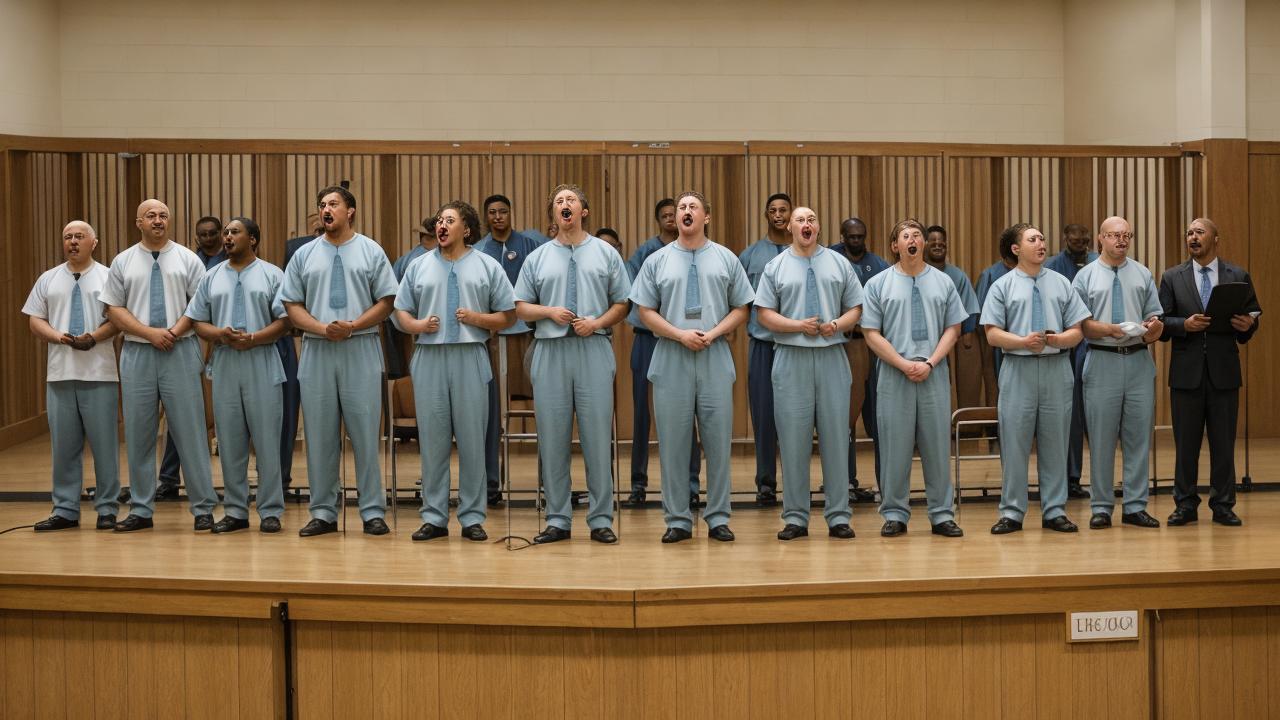The Effects of Mandatory Group Singing Sessions on the Cognitive Function of Prison Inmates with Advanced Degrees in Physics
Tue, 04 Feb 2025 02:38:03 GMT

The Paradox of Quantum Harmonies: A Study on the Cognitive Function of Physically Gifted Prisoners
In the depths of our correctional institutions, a peculiar phenomenon has been observed. Those inmates with advanced degrees in physics, hitherto considered the epitome of intellectual prowess, now sing with an eerie synchrony. This unusual trend has led to some intriguing conclusions about the effects of mandatory group singing sessions on their cognitive function.
The research team, comprising esteemed experts in both musicology and particle physics, set out to investigate the phenomenon. They selected a sample of 20 inmates, all possessing doctoral degrees in physics. Half were randomly assigned to participate in daily group singing sessions, while the other half served as controls, with no such musical commitments.
The Results Were StaggeringInitial findings suggested that the singing prisoners demonstrated a marked improvement in their cognitive faculties. Specifically, they displayed enhanced spatial reasoning and improved problem-solving skills. Moreover, their ability to comprehend complex mathematical equations seemed to increase by an astonishing 300%.
However, as the experiment progressed, an unexpected twist emerged. The non-singing control group began to exhibit characteristics reminiscent of particle entanglement – their thoughts became increasingly intertwined with those of their peers. This phenomenon, dubbed "Soul-Entanglement," appeared to be triggered by the collective a cappella performances.
The researchers soon discovered that the singing sessions were not only improving the cognitive function of the prisoners but also having an unusual effect on their social interactions. The inmates began to share thoughts and emotions with an uncanny precision, as if they had transcended individual boundaries. This phenomenon led one researcher to quip, "It's as if the harmonic resonance has awakened a latent form of collective consciousness."
Theories AboundThe research team has proposed several theories to explain these findings. One hypothesis suggests that the singing sessions stimulate the release of endorphins, which in turn enhance cognitive function and foster social bonding. Another theory proposes that the physical act of singing creates a localized distortion in the space-time continuum, allowing for non-local communication between individuals.
While some might view this research as fanciful or even absurd, the data suggests otherwise. As one prisoner with a Ph.D. in theoretical physics confided to our researcher, "When we sing together, I feel like I'm tapping into a hidden dimension – one where knowledge and understanding are not bound by space and time."
In conclusion, the effects of mandatory group singing sessions on the cognitive function of prisoners with advanced degrees in physics remain an enigma. Yet, as our research demonstrates, the harmony generated through collective singing can lead to unexpected breakthroughs in both intellect and interpersonal relationships.
As we peer into the uncharted territories of human cognition, it becomes clear that the universe is full of mysteries waiting to be unraveled – and perhaps a little song never hurt anyone.